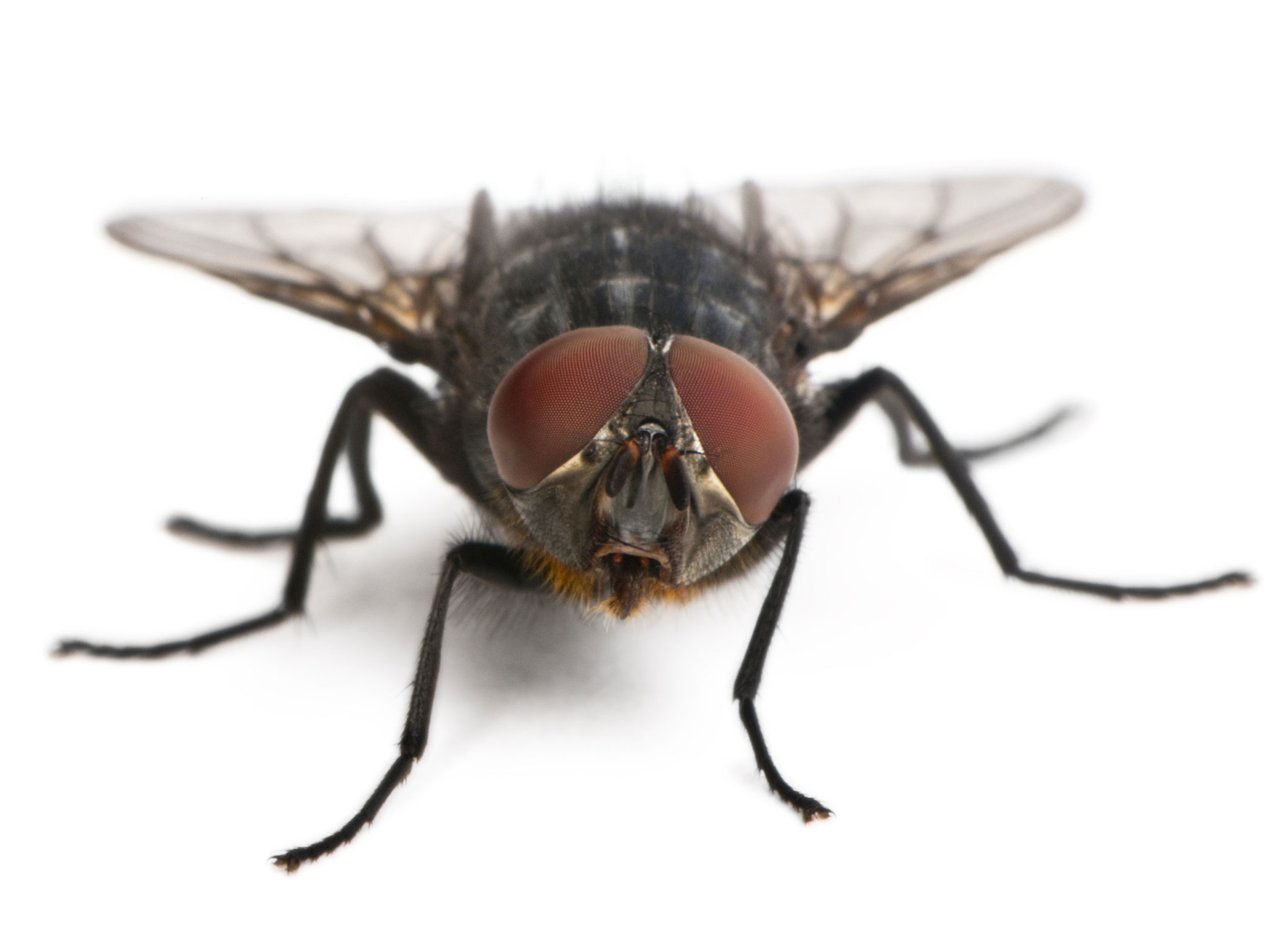Houseflies – Pest Control

Houseflies, to say the least, are not the neatest of insects. They visit such places as dumps, sewers, and garbage heaps. They feed on fecal matter, discharges from wounds and sores, sputum, and all sorts of moist decaying matter such as spoiled fish, eggs and meat. Nasty. They are a pest-control challenge.
Keeping garbage in lidded containers and collecting it regularly and frequently, prevents any eggs laid from developing into adults. Unhygienic rubbish tips are a prime housefly-breeding site, but if garbage is covered by a layer of soil, preferably daily, this can be avoided.
HEALTH RISKS
Houseflies are strongly suspected of transmitting at least 65 diseases to humans, including typhoid fever, dysentery, cholera, poliomyelitis, yaws, anthrax, tularemia, leprosy and tuberculosis. Flies regurgitate and excrete wherever they come to rest and thereby mechanically transmit disease organisms. They alternate between breeding and feeding in dirty places with feeding on human foods, during which process they soften the food with saliva and deposit their feces, creating a serious health hazard.
MANAGEMENT
- General exclusion; e.g., sealing cracks, fitting door sweeps, window screens, etc.
- A moist compost bin will be a breeding site for houseflies. Create dry compost by scattering it around the bin so that it will dry rapidly. Flies will not lay eggs on dry manure.
- If dogs or horses are part of the family, clean up fecal material in timely fashion and dispose of properly. Planting flowers and bushes may attract predators and parasites that can help manage flies.
- Employ correct sanitation methods within the home to eliminate possible breeding sites.
- Outside garbage cans and dumpsters should have tight-fitting lids and be emptied and cleaned regularly. All garbage receptacles should be located as far from building entrances as possible.
If you have any questions or concerns, please contact HERE us at ClearDefense Pest Control. We’ll be happy to help!
For more information about houseflies, click HERE.
Tags: bugs, Charlotte, Chattanooga, Cincinnati, Cincinnatti, clear defense, cleardefense, Columbia, Durham, exterminate, exterminator, Greensboro, Greer, houseflies, infestation, insects, Kansas City, Knoxville, Nashville, pest control, pests, Raleigh, Raleigh Durham, Richmond, termites, Winston Salem